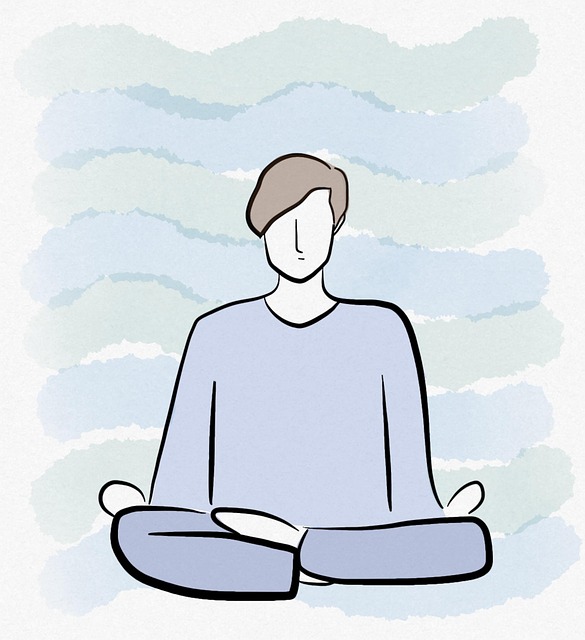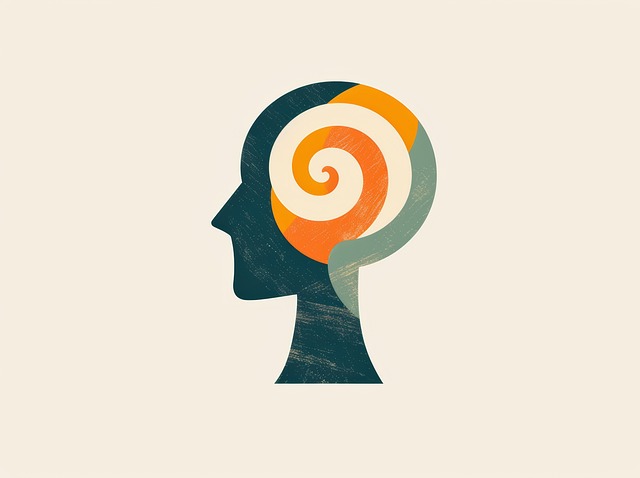Englewood Hypnosis Therapy combines mindfulness meditation, breathing exercises, and body scans to help clients manage stress, enhance self-esteem, and reduce anxiety. Creating a dedicated home space for meditation, focusing on deep breathing, and practicing yoga with body scans all support mental wellness. Consistency is key in establishing a regular practice, leading to improved mental clarity and reduced burnout for healthcare providers. Englewood Hypnosis Therapy emphasizes that cultivating mindfulness can navigate life's challenges with greater ease.
“Unwind and embrace tranquility with a deep dive into mindfulness meditation practice, as guided by Englewood Hypnosis Therapy. This comprehensive article explores the foundational techniques that underpin our therapeutic approach. From preparing your dedicated space for serene practice to mastering focused breathing and incorporating mindful movement through yoga and body scans, each section offers practical tips for enhancing relaxation. Discover how cultivating regular meditation can sustain your mental well-being.”
- Understanding Mindfulness Meditation: A Foundation for Englewood Hypnosis Therapy
- Preparing Your Space: Creating a Serene Environment for Practice
- The Art of Focused Breathing: Techniques to Calm the Mind
- Incorporating Mindful Movement: Yoga and Body Scans for Enhanced Relaxation
- Cultivating Regular Practice: Tips for Sustaining Your Meditation Journey
Understanding Mindfulness Meditation: A Foundation for Englewood Hypnosis Therapy

Mindfulness meditation is a practice that cultivates present-moment awareness and non-judgmental observation of thoughts and feelings. At the heart of Englewood Hypnosis Therapy, this ancient technique serves as a powerful foundation for transforming one’s mental and emotional state. By focusing on the here and now, individuals can learn to detach from stressful or negative thought patterns, thereby fostering a deeper sense of calm and clarity.
Englewood Hypnosis Therapy incorporates mindfulness meditation to enhance self-esteem improvement, anxiety relief, and positive thinking. Through guided sessions, clients are led through gentle breathing exercises and body scans, encouraging them to observe their experiences without attachment. This practice strengthens the mind-body connection, allowing for profound relaxation and a renewed sense of inner strength. Over time, regular mindfulness meditation can lead to improved emotional regulation and overall well-being, ultimately empowering individuals to navigate life’s challenges with greater ease.
Preparing Your Space: Creating a Serene Environment for Practice

Creating a dedicated space for your mindfulness meditation practice is an essential step in enhancing your overall well-being. At Englewood Hypnosis Therapy, we emphasize the significance of a serene environment to foster better mental health. Your meditation area should be a tranquil haven where you can escape the chaos of daily life. Consider transforming a corner of your home into a peaceful sanctuary by incorporating elements that promote calmness and relaxation. Soft lighting, comfortable seating, and minimal clutter can significantly contribute to this ambiance. Natural elements like plants or a small water feature can also add to the soothing atmosphere.
A well-prepared space allows you to focus on your breath and thoughts without external distractions. This practice not only improves your ability to manage stress through mindfulness but also supports self-esteem improvement and provides effective stress reduction methods. By creating this mindful oasis, you take a proactive step towards better mental health, ensuring that each meditation session is a transformative experience.
The Art of Focused Breathing: Techniques to Calm the Mind

In the quest for inner peace, focused breathing is a potent tool offered by mindfulness meditation practices. This simple yet profound technique forms the foundation of many Englewood Hypnosis Therapy sessions, guiding individuals to calm their minds and cultivate present-moment awareness. By concentrating on the inhalation and exhalation, one can gently redirect their thoughts away from stressors and into a state of tranquility.
The art of focused breathing involves slow, deep breaths, allowing each inhale to fill your lungs with fresh air and each exhale to release tension and worries. This practice, often coupled with compassion cultivation practices and coping skills development, offers a powerful means to navigate life’s challenges. It helps individuals develop resilience, fostering a sense of inner strength that can support them in managing trauma and enhancing overall well-being.
Incorporating Mindful Movement: Yoga and Body Scans for Enhanced Relaxation

Incorporating mindful movement practices like yoga and body scans can significantly enhance your meditation experience, leading to deeper relaxation and improved mental wellness. Englewood Hypnosis Therapy recommends integrating these techniques as part of your self-care routine development for better mental health. Yoga combines physical postures with focused breathing, allowing you to cultivate present-moment awareness while stretching and strengthening your body.
During a yoga session, pay attention to each movement, feeling the connection between your breath and body. This practice helps calm the mind and releases tension stored in the muscles. Similarly, body scans involve systematically focusing on different parts of your body, noting any sensations without judgment. This mindful approach to physical awareness can deepen your meditation practice, promoting a sense of tranquility and mental clarity that benefits your overall mental wellness coaching programs development.
Cultivating Regular Practice: Tips for Sustaining Your Meditation Journey

Cultivating regular mindfulness meditation practice is a journey that requires commitment and consistency. At Englewood Hypnosis Therapy, we understand that establishing a routine can be challenging, especially in our fast-paced world. To sustain your meditation journey, consider incorporating these tips into your daily life. Start small, aiming for just 5–10 minutes of practice each day, and gradually increase the duration as you become more comfortable. Consistency is key; schedule your meditation time just like any other important appointment to ensure it becomes a natural part of your routine.
Surround yourself with supportive elements that foster mindfulness. This could be creating a peaceful space dedicated to meditation, using guided meditations or apps designed for beginners, and engaging in Self-Awareness Exercises tailored to your needs. Remember, the goal is not perfection but progress. Be kind to yourself and embrace the process of cultivating inner peace and mental clarity, which can also contribute to Mental Illness Stigma Reduction Efforts and Burnout Prevention Strategies for Healthcare Providers.
Mindfulness meditation, as guided by Englewood Hypnosis Therapy, is a powerful tool for calming the mind and cultivating inner peace. By understanding its foundational principles, preparing a serene space, mastering focused breathing, incorporating mindful movement, and maintaining regular practice, individuals can embark on a transformative journey towards enhanced relaxation and overall well-being. Embrace these techniques to unlock the benefits of mindfulness meditation in your daily life.














